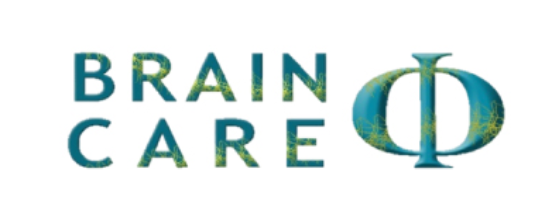
Mild Cognitive Impairment - MCI
What is Mild Cognitive Impairment - MCI?
Mild cognitive impairment (MCI) is a condition that affects many older adults. It is characterized by a decline in cognitive function that is noticeable, but not severe enough to interfere with daily activities. People with MCI often have memory problems, difficulty with language, and reduced attention span. Although the symptoms of MCI can be distressing, the condition is not a form of dementia or Alzheimer's disease, and people with MCI can continue to lead active and fulfilling lives.
Symptoms of MCI
The symptoms of MCI can vary widely, depending on the underlying cause of the condition. However, some of the most common symptoms include:
Memory loss: People with MCI often have difficulty remembering important information such as appointments, dates, or names.
Language problems: People with MCI may have difficulty finding the right words to express themselves, or may struggle to understand complex sentences.
Reduced attention span: People with MCI may have trouble concentrating on tasks that require sustained attention.
Impaired judgment: People with MCI may make poor decisions or have difficulty with problem-solving.
Difficulty with visual and spatial abilities: People with MCI may have trouble with depth perception, or may have difficulty navigating familiar environments.
Changes in mood or behavior: People with MCI may become more irritable or anxious, or may withdraw from social activities.
Management of Mild Cognitive Impairment
MCI can be diagnosed through several questionnaires and observations, but qEEG or Brain Mapping can actually detect the levels of activity in specific areas of the brain strongly linked to MCI. There is currently no cure for MCI, but there are several strategies that can help manage the condition and improve cognitive function. Some of the most effective management strategies for MCI include:
Cognitive training: Cognitive training programs can help improve memory, attention, and problem-solving skills in people with MCI.
Physical exercise: Regular exercise has been shown to improve cognitive function in people with MCI, as well as reduce the risk of developing dementia.
Diet and nutrition: A healthy diet that is high in fruits, vegetables, and lean proteins can help improve cognitive function and reduce the risk of developing dementia.
Medications: Some medications, such as cholinesterase inhibitors, can help improve cognitive function in people with MCI.
Management of underlying conditions: MCI can be caused by underlying medical conditions such as depression, anxiety, or sleep apnea. Treating these conditions can help improve cognitive function.
Social engagement: Staying socially engaged through activities such as volunteering, attending community events, or joining a club can help improve cognitive function and reduce the risk of developing dementia.
Photobiomodulation: Near-infra red light has been successfully used in healing skeletal and muscle tissue in the human body, addressing the tissue at a cellular level, a technological breakthrough that is now applied to the brain tissue as well.
Mild cognitive impairment is a common condition that affects many older adults. Although the symptoms of MCI can be distressing, there are several management strategies that can help improve cognitive function and reduce the risk of developing dementia. By adopting a healthy lifestyle that includes regular exercise, a balanced diet, and social engagement, people with MCI can continue to lead active and fulfilling lives. Additionally, it's important to seek medical advice if you suspect you or a loved one may be experiencing MCI symptoms to receive proper diagnosis and appropriate care. Contact our psychology clinic in Tweed Heads, where counselling is available for children, teens, adults, couples and families. Often the first step is the hardest, but Brain Care is here to support you through the rest of your journey.
WHO WE HELP
Anger Management
Eating Disorders
Memory Loss - MCI
Peak Performance
Contact Us

